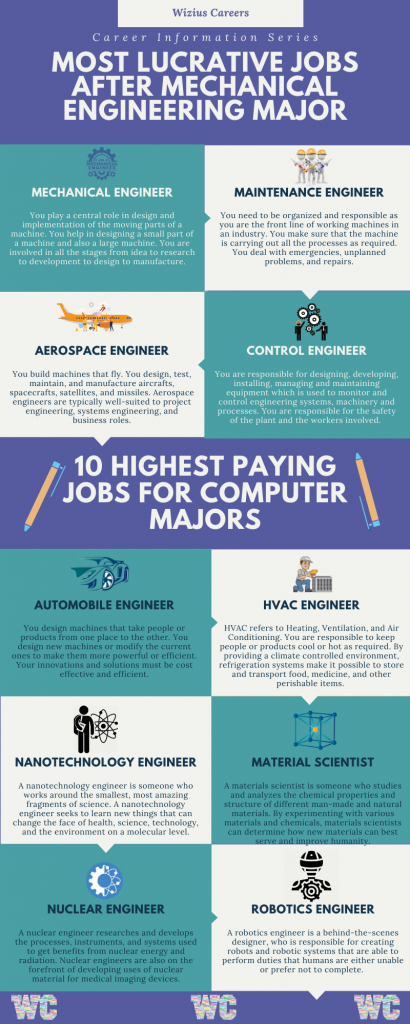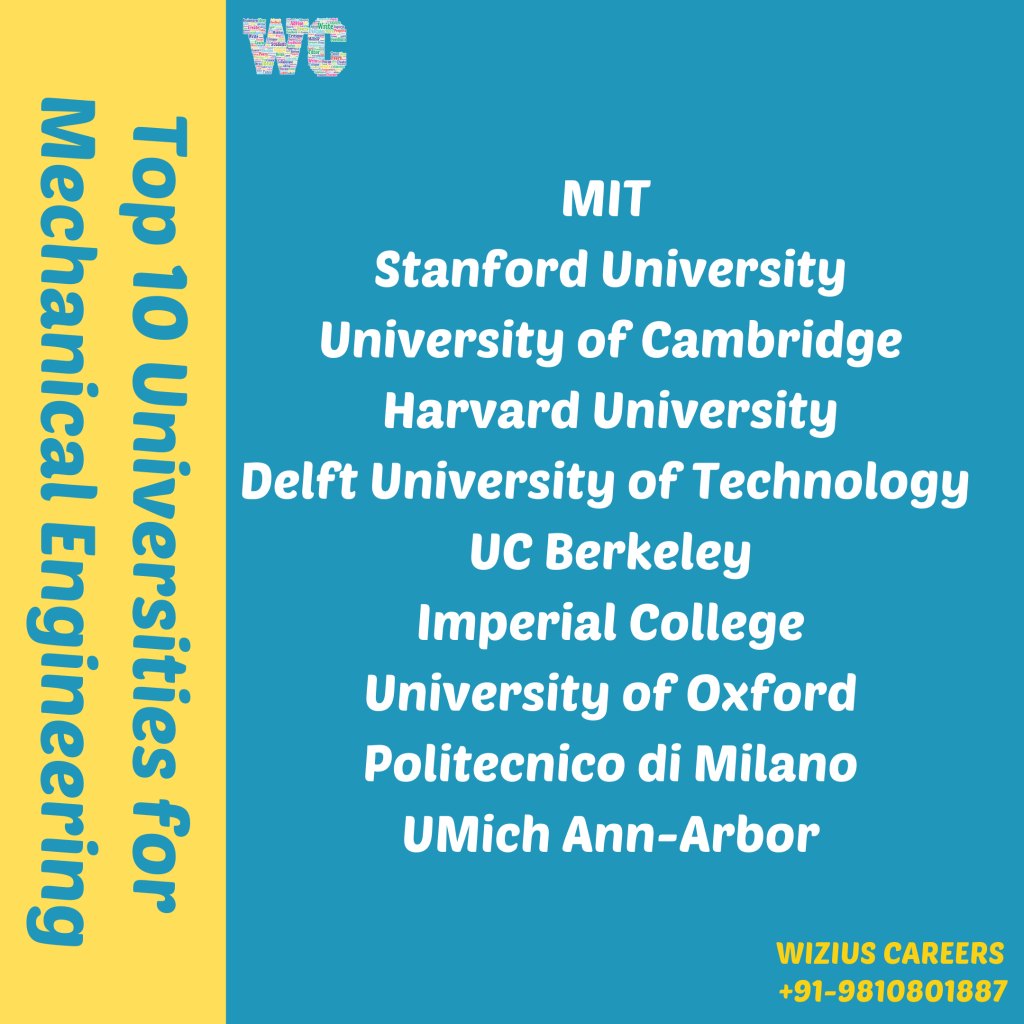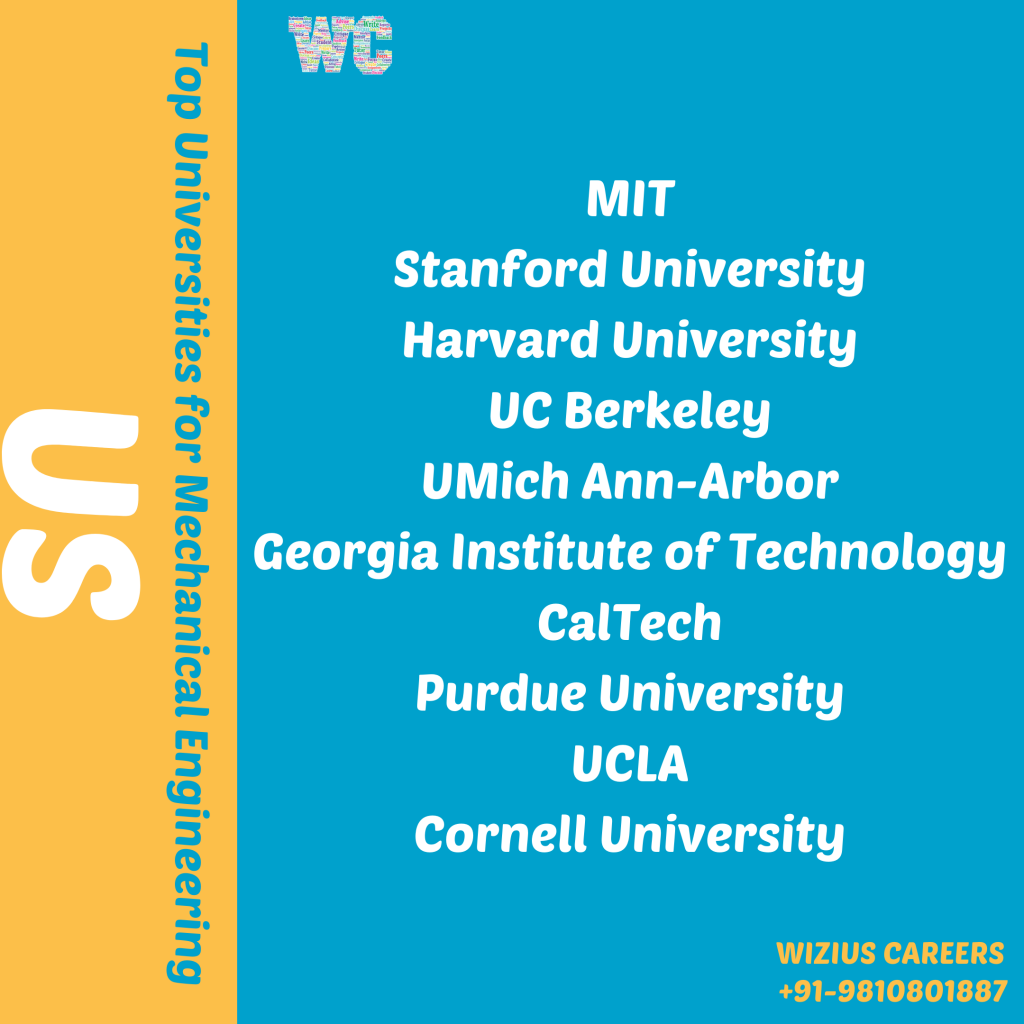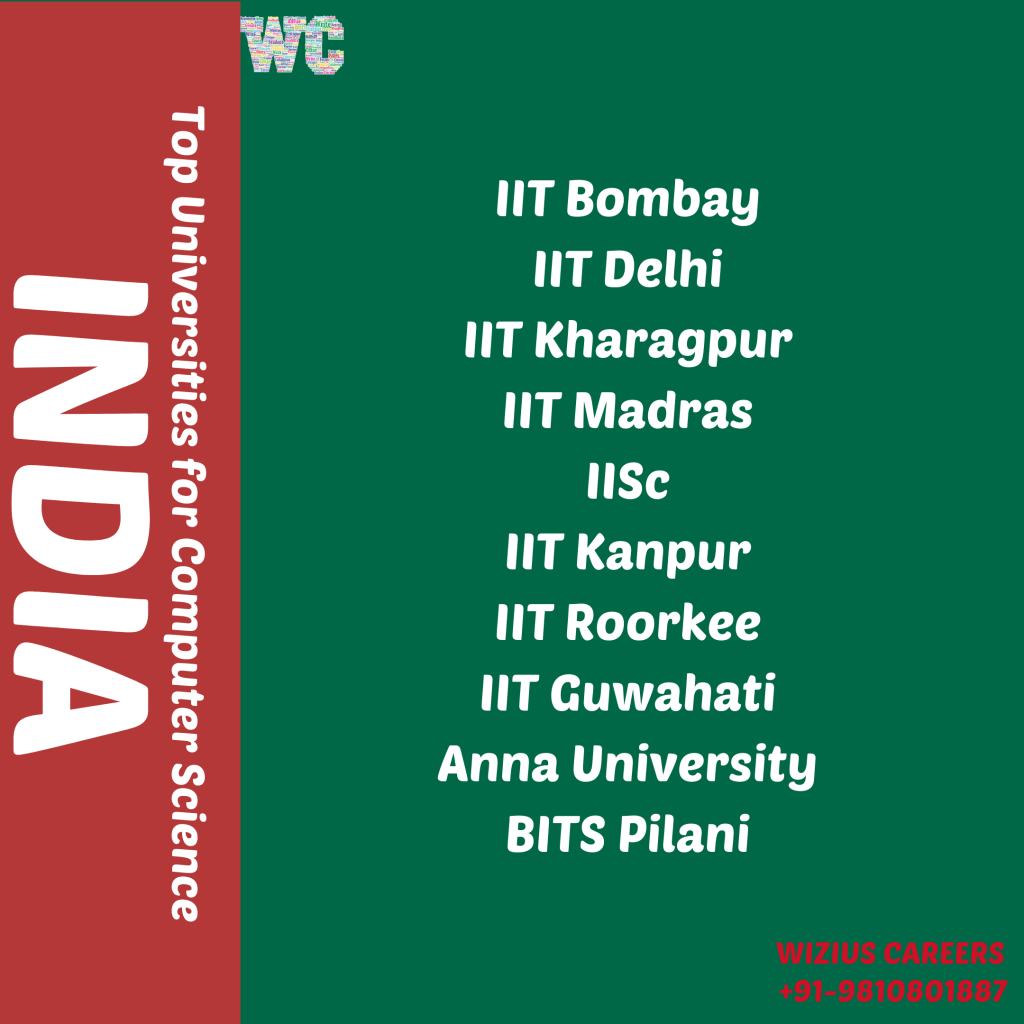Study Guide: Mechanical Engineering

Do you dream of a supercar or a super bike? Maybe you think about making machines more efficient with new material or by using a new fuel. Maybe you want to work towards sustainable energy or want to be a part of artificial intelligence by creating a robot?
Mechanical engineering is one of the most diverse fields of engineering. It offers a wide range of specialisations from manufacturing to transportation to energy to nanotechnology. You constantly study the objects and systems in motion. As a mechanical engineer, you take a product from an idea to the market. You are the one who determines the forces that the product will face; the best design for a functionality; design for durability; and the best manufacturing process to make the product.
The breadth of mechanical engineering offers students a wide array of career options beyond the ones listed above. An education in the mechanical engineering field empowers you with creative thinking skills to design and develop new and amazing products; analytical tools to achieve the strength and durability goals; teamwork needed to make a design work; and finally produce a system using the principles of motion, energy, and force.
General Entry Requirements for Mechanical Engineering Programs
For undergraduate students, a background in mathematics is must. But, it is highly recommended that you learn some computer language in school to get a better understanding of the topics at college.
Colleges in the US will need you to score well in Class 9, 10, 11 and also on the SAT or ACT. However, most colleges out of the US do not need you to take an entrance test but will need you to take an English Language Proficiency Test – IELTS, TOEFL, or PTE.
For graduate students, a background in Computer Science is much needed. A proficiency in math will be an added advantage. For most top programs across the globe, you will need to take the GRE and get a good score. A good enough score can even get you a scholarship at one of the top schools.
Possible Specialisations in Mechanical Engineering
You study a plethora of subjects in Mechanical Engineering ranging from dynamics, thermodynamics, fluid mechanics, stress analysis, and technical drawing. When you graduate with a degree in Mechanical Engineering, you have a basic understanding and information about many subjects that will be enough for you to prosper in any specialised field of work.
Here are some of the most popular specialisation:
1. Biomechanical Engineering
You will apply mechanical engineering principles to human health care problems.
This area has seen tremendous growth over the last few years and is bound to grow further in the coming years. You will be helping improve medical equipment with the use of technology.
2. Controls
Machines are becoming more complex everyday and also the requirements for performance and efficiency are increasing everyday. Subjects covered under this specialization are linear system theory, digital control, nonlinear control. Adaptive control, modeling and identification, robust control theory, signal processing, and control of robot manipulators.
3. Design
You study analysis, synthesis, design, automation, fabrication, testing, evaluation, and optimization of mechanical systems. You design machines to improve efficiency and improve product outputs. You study stress analysis, tribology, fracture mechanics, gear-design, transmissions, mechanics of materials, and basic manufacturing process analysis.
4. Energy Science
You work on products that involve storage, transport, conversion, and use of energy. This is also an area of tremendous growth with ongoing research in hydrogen energy systems, combustion of biofuels, pollution control, and ignition engine technologies.
5. Manufacturing
Manufacturing has always been and, most probably, will continue to be among the top specializations in mechanical engineering. You will cover a broad range of processes and modeling activities all focused on the conversion of materials into products. Manufacturing is one of the largest contributors to employment and innovation.
Most Lucrative Jobs after a Mechanical Engineering Major
1. Mechanical Engineer
You play a central role in design and implementation of the moving parts of a machine. You help in designing a small part of a machine and also a large machine. You are involved in all the stages from idea to research to development to design to manufacture.
2. Maintenance Engineer
You need to be organized and responsible as you are the front line of working machines in an industry. You make sure that the machine is carrying out all the processes as required. You deal with emergencies, unplanned problems, and repairs.
3. Control and Instrumentation Engineer
You are responsible for designing, developing, installing, managing and maintaining equipment which is used to monitor and control engineering systems, machinery and processes. You are responsible for the safety of the plant and the workers involved. You also have to keep thinking about designing and developing new control systems.
4. Aerospace Engineer
You build machines that fly. You design, test, maintain, and manufacture aircrafts, spacecrafts, satellites, and missiles. Aerospace engineers are typically well-suited to project engineering, systems engineering, and business roles – these are roles where system-level knowledge as well as math and science knowledge is needed to make, and back up, any decisions.
5. Automobile Engineer
You design machines that take people or products from one place to the other. You design new machines or modify the current ones to make them more powerful or efficient. Your innovations and solutions must be cost effective and efficient.
6. HVAC Engineer
HVAC refers to Heating, Ventilation, and Air Conditioning. You are responsible to keep people or products cool or hot as required. By providing a climate controlled environment, refrigeration systems make it possible to store and transport food, medicine, and other perishable items. The job can be to repair a pipe that is leaking, replace a damaged or defective mechanical part, or adjust equipment settings for better performance.
7. Material Scientist
A materials scientist is someone who studies and analyzes the chemical properties and structure of different man-made and natural materials. By experimenting with various materials and chemicals, materials scientists can determine how new materials can best serve and improve humanity. Materials science professionals have created many of the items that people use today such as shoes, soap, canisters, containers, makeup, packaging materials, and so on. The main goal of someone practicing materials science is to study and understand old materials in order to create new material with improved characteristics.
8. Nanotechnology Engineer
A nanotechnology engineer is someone who works around the smallest, most amazing fragments of science. A nanotechnology engineer seeks to learn new things that can change the face of health, science, technology, and the environment on a molecular level. They test for pollutants, create powders to enrich our foods and medicines, and study the smallest fragments of DNA. They can even manipulate cells, proteins, and other chemicals from within the body.
9. Nuclear Engineer
A nuclear engineer researches and develops the processes, instruments, and systems used to get benefits from nuclear energy and radiation. Nuclear engineers are also on the forefront of developing uses of nuclear material for medical imaging devices, such as positron emission tomography (PET) scanners. They also may develop or design cyclotrons that produce a high-energy beam that the healthcare industry uses to treat cancerous tumors.
10. Robotics Engineer
A robotics engineer is a behind-the-scenes designer, who is responsible for creating robots and robotic systems that are able to perform duties that humans are either unable or prefer not to complete. A robotics engineer will spend the majority of their time designing the plans needed to build robots. They also design the processes necessary for the robot to run correctly. Some of these professionals are also responsible for designing the machines that actually assemble the robots. Once the design phase has been completed, only then do they move toward assembling the unit.

Top Ranked Universities for Mechanical Engineering
The Top 10 Mechanical Engineering Universities
1. MIT (US)
2. Stanford University (US)
3. University of Cambridge (UK)
4. Harvard University (US)
5. Delft University of Technology (Netherlands)
6. University of California, Berkeley (US)
7. Imperial College London (UK)
8. University of Oxford (UK)
9. Politecnico di Milano (Italy)
10. University of Michigan Ann-Arbor (US)

The Top 10 Mechanical Engineering Universities in the US
1. MIT
2. Stanford University
3. Harvard University
4. University of California, Berkeley
5. University of Michigan, Ann-Arbor
6. Georgia Institute of Technology
7. CalTech
8. Purdue University
9. University of California, Los Angeles
10. Cornell University

The Top 10 Mechanical Engineering Universities in UK
1. University of Cambridge
2. University of Oxford
3. Imperial College London
4. University of Manchester
5. Cranfield University
6. Loughborough University
7. University of Nottingham
8. University of Sheffield
9. UCL
10. University of Birmingham

The Top 10 Mechanical Engineering Universities in Canada
1. University of Toronto
2. McGill University
3. University of British Columbia
4. University of Waterloo
5. McMaster University
6. University de Montreal
7. University of Alberta
8. Queen’s University
9. University of Calgary
10. Western University

The Top 10 Mechanical Engineering Universities in Australia
1. University of Melbourne
2. Monash University
3. UNSW Sydney
4. The University of Sydney
5. ANU
6. RMIT University
7. University of Adelaide
8. University of Western Australia
9. University of Technology, Sydney
10. Queensland University of Technology

The Top 10 Mechanical Engineering Universities in Germany
1. RWTH Aachen University
2. Technical University of Munich
3. Universitat Stuttgart
4. KIT
5. TU Berlin
6. Technical University of Darmstadt
7. Technische Universitat Dresden
8. Leibniz University Hannover
9. Technische Universitat Braunschewig
10. Universitat Erlangen

The Top 10 Mechanical Engineering Universities in India
1. IIT Bombay
2. IIT Delhi
3. IIT Kharagpur
4. IIT Madras
5. IISc
6. IIT Kanpur
7. IIT Roorkee
8. IIT Guwahati
9. Anna University
10. BITS Pilani

The Top 10 Mechanical Engineering Universities in Asia
1. NTU
2. Tsinghua
3. NUS
4. University of Tokyo
5. Shanghai Jiao Tong University
6. KAIST
7. Seoul National University
8. Peking University
9. HKUST
10. Tokyo Tech

The Top 10 Mechanical Engineering Universities in Europe
1. University of Cambridge
2. Delft University of Technology
3. Imperial College
4. University of Oxford
5. Politecnico di Milano
6. ETH Zurich
7. EPFL
8. RWTH Aachen
9. Technical University of Munich
10. The University of Manchester

Now, you have all the information you need to select where to study and what to study if you are interested in studying Computer Science. For any further information or any detail, you can connect with an admission/subject expert from the Wizius Team.
Work with a HARVARD ALUMNI
to get an ADMIT TO TOP 50 UNIVERSITIES.
Tags:ACT Prep GRE GRE prep Jobs Mechanical Engineering MS Admissions SAT Prep Study Abroad Study Guide Study in Australia Study in Canada Study in UK Study in US Study in USA Undergraduate Admissions




